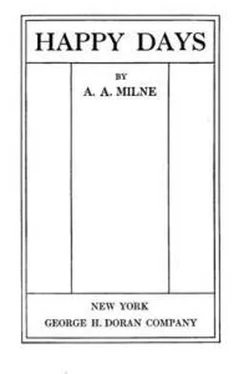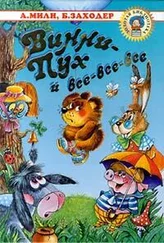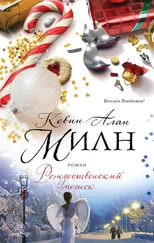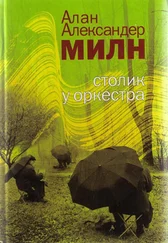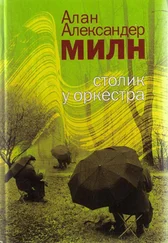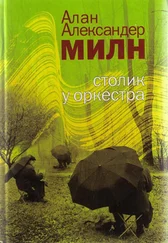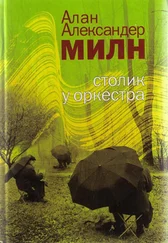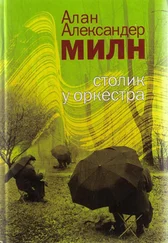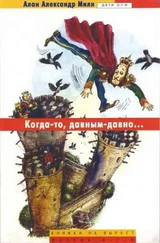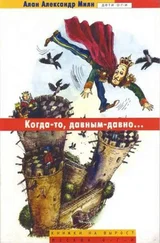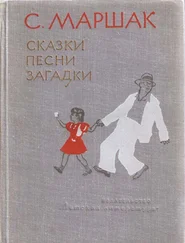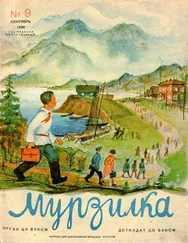Алан Милн - Happy Days
Здесь есть возможность читать онлайн «Алан Милн - Happy Days» весь текст электронной книги совершенно бесплатно (целиком полную версию без сокращений). В некоторых случаях можно слушать аудио, скачать через торрент в формате fb2 и присутствует краткое содержание. Год выпуска: 2014, Издательство: epubBooks Classics, Жанр: Юмористическая проза, на английском языке. Описание произведения, (предисловие) а так же отзывы посетителей доступны на портале библиотеки ЛибКат.
- Название:Happy Days
- Автор:
- Издательство:epubBooks Classics
- Жанр:
- Год:2014
- ISBN:нет данных
- Рейтинг книги:5 / 5. Голосов: 1
-
Избранное:Добавить в избранное
- Отзывы:
-
Ваша оценка:
- 100
- 1
- 2
- 3
- 4
- 5
Happy Days: краткое содержание, описание и аннотация
Предлагаем к чтению аннотацию, описание, краткое содержание или предисловие (зависит от того, что написал сам автор книги «Happy Days»). Если вы не нашли необходимую информацию о книге — напишите в комментариях, мы постараемся отыскать её.
Happy Days — читать онлайн бесплатно полную книгу (весь текст) целиком
Ниже представлен текст книги, разбитый по страницам. Система сохранения места последней прочитанной страницы, позволяет с удобством читать онлайн бесплатно книгу «Happy Days», без необходимости каждый раз заново искать на чём Вы остановились. Поставьте закладку, и сможете в любой момент перейти на страницу, на которой закончили чтение.
Интервал:
Закладка:
And even when there is nothing doing he is still happy, waiting cheerfully upon events until they arrange themselves for his amusement. He will sit for twenty minutes opposite the garden bank, watching for a bumble bee to come out of its hole. "I saw him go in," he says to himself, "so he's bound to come out. Extraordinary interesting world." But to his inferiors (such as the gardener) he pretends that it is not pleasure but duty which keeps him. "Don't talk to me, fool. Can't you see that I've got a job on here?"
Chum has found, however, that his particular mission in life is to purge his master's garden of all birds. This keeps him busy. As soon as he sees a blackbird on the lawn he is in full cry after it. When he gets to the place and finds the blackbird gone he pretends that he was going there anyhow; he gallops round in circles, rolls over once or twice, and then trots back again. "You didn't really think I was such a fool as to try to catch a blackbird ?" he says to us. "No, I was just taking a little run—splendid thing for the figure."
And it is just Chum's little runs over the beds which call aloud for firmness—which, in fact, have inspired my birthday present to him. But there is this difficulty to overcome first. When he came to live with us, an arrangement was entered into (so he says) by which one bed was given to him as his own. In that bed he could wander at will, burying bones and biscuits, hunting birds. This may have been so, but it is a pity that nobody but Chum knows definitely which is the bed.
"Chum, you bounder," I shout, as he is about to wade through the herbaceous border.
He takes no notice; he struggles through to the other side. But a sudden thought strikes him, and he pushes his way back again.
"Did you call me?" he says.
"How dare you walk over the flowers?"
He comes up meekly.
"I suppose I've done something wrong," he says, "but I can't think what."
I smack his head for him. He waits until he is quite sure I have finished and then jumps up with a bark, wipes his paws on my trousers and trots into the herbaceous border again.
"Chum!" I cry.
He sits down in it and looks all round him in amazement.
"My own bed!" he murmurs. " Given to me!"
I don't know what it is in him which so catches hold of you. His way of sitting, a reproachful statue, motionless outside the window of whomever he wants to come out and play with him—until you can bear it no longer, but must either go into the garden or draw down the blinds for one day; his habit when you are out, of sitting up on his back legs and begging you with his front paws to come and do something—a trick entirely of his own invention, for no one would think of teaching him anything; his funny nautical roll when he walks, which is nearly a swagger, and gives him always the air of having just come back from some rather dashing adventure; beyond all this there is still something. And whatever it is, it is something, which every now and then compels you to bend down and catch hold of his long silky ears, to look into his honest eyes and say―
"You silly old ass! You dear old silly old ass!"
XXX
"Under Entirely New Management"
I know a fool of a dog who pretends that he is a Cocker Spaniel, and is convinced that the world revolves round him wonderingly. The sun rises so it may shine on his glossy morning coat; it sets so his master may know that it is time for the evening biscuit; if the rain falls it is that a fool of a dog may wipe on his mistress's skirts his muddy boots. His day is always exciting, always full of the same good thing; his night a repetition of his day, more gloriously developed. If there be a sacred moment before the dawn when he lies awake and ponders on life, he tells himself confidently that it will go on for ever like this—a life planned nobly for himself, but one in which the master and mistress whom he protects must always find a place. And I think perhaps he would want a place for me too in that life, who am not his real master but yet one of the house. I hope he would.
What Chum doesn't know is this: his master and mistress are leaving him. They are going to a part of the world where a fool of a dog with no manners is a nuisance. If Chum could see all the good little London dogs, who at home sit languidly on their mistress's lap, and abroad take their view of life through a muff much bigger than themselves; if he could see the big obedient dogs, who walk solemnly through the Park carrying their master's stick, never pausing in their impressive march unless it be to plunge into the Serpentine and rescue a drowning child, he would know what I mean. He would admit that a dog who cannot answer to his own name and pays but little more attention to "Down, idiot," and "Come here, fool," is not every place's dog. He would admit it, if he had time. But before I could have called his attention to half the good dogs I had marked out, he would have sat down beaming in front of a motor–car … and then he would never have known what now he will know so soon—that his master and mistress are leaving him.
It has been my business to find a new home for him. It is harder than you think. I can make him sound lovable, but I cannot make him sound good. Of course I might leave out his doubtful qualities, and describe him merely as beautiful and affectionate; I might … but I couldn't. I think Chum's habitual smile would get larger, he would wriggle the end of himself more ecstatically than ever if he heard himself summed up as beautiful and affectionate. Anyway, I couldn't do it, for I get carried away when I speak of him and I reveal all his bad qualities.
"I am afraid he is a snob," I confessed to one woman of whom I had hopes. "He doesn't much care for what he calls the lower classes."
"Oh?" she said.
"Yes, he hates badly dressed people. Corduroy trousers tied up at the knee always excite him. I don't know if any of your family—no, I suppose not. But if he ever sees a man with his trousers tied up at the knee he goes for him. And he can't bear tradespeople; at least not the men. Washer–women he loves. He rather likes the washing–basket too. Once, when he was left alone with it for a moment, he appeared shortly afterwards on the lawn with a pair of—well, I mean he had no business with them at all. We got them away after a bit of a chase, and then they had to go to the wash again. It seemed rather a pity when they'd only just come back. Of course I smacked his head for him; but he looks so surprised and reproachful when he's done wrong that you never feel it's quite his fault."
"I doubt if I shall be able to take him after all," she said. "I've just remembered―"
I forget what it was she remembered, but it meant that I was still without a new home for Chum.
"What does he eat?" somebody else asked me. It seemed hopeful; I could see Chum already installed.
"Officially," I said, "he lives on puppy biscuits; he also has the toast–crusts after breakfast and an occasional bone. Privately he is fond of bees; I have seen him eat as many as six bees in an afternoon. Sometimes he wanders down to the kitchen–garden and picks the gooseberries; he likes all fruit, but gooseberries are the things he can reach best. When there aren't any gooseberries about, he has to be content with the hips and haws from the rose–trees. But really, you needn't bother, he can eat anything. The only thing he doesn't like is whitening. We were just going to mark the lawn one day, and while we were busy pegging it out he wandered up and drank the whitening out of the marker. It is practically the only disappointment he has ever had. He looked at us, and you could see that his opinion of us had gone down. 'What did you put it there for, if you didn't mean me to drink it?' he said reproachfully. Then he turned and walked slowly and thoughtfully back to his kennel. He never came out till next morning."
Читать дальшеИнтервал:
Закладка:
Похожие книги на «Happy Days»
Представляем Вашему вниманию похожие книги на «Happy Days» списком для выбора. Мы отобрали схожую по названию и смыслу литературу в надежде предоставить читателям больше вариантов отыскать новые, интересные, ещё непрочитанные произведения.
Обсуждение, отзывы о книге «Happy Days» и просто собственные мнения читателей. Оставьте ваши комментарии, напишите, что Вы думаете о произведении, его смысле или главных героях. Укажите что конкретно понравилось, а что нет, и почему Вы так считаете.
